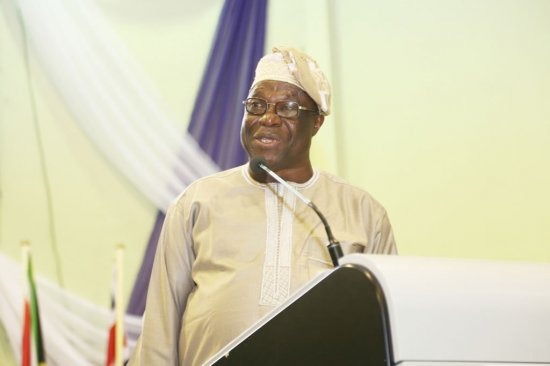Report: HEDA urges fairness, integrity, democracy in Nigeria’s Judicial system 
A new report by the Human and Environmental Development Agenda (HEDA Resource Centre) has called for a judicial system where fairness, integrity and democracy will reign supreme.
The Leadership Approval Rating (LAR), Volume Five Report, which was unveiled at a medium event on Tuesday in Lagos is titled:
“Voices for Justice: A Civic Lens on Nigeria’s Judicial System– Documenting Public Experiences, Opinions & Reform Demands.”
Speaking at the unveiling of the report, HEDA’s Executive Secretary, Mr Sulaimon Arigbabu, said that the event marked another significant milestone in our collective journey to deepen democratic accountability and strengthen the institutions that underpin our democracy.
Arigbabu said that the report, like previous ones, underscores our unwavering commitment to ensuring that public institutions are not only transparent and efficient, but also remain answerable to the people they are meant to serve.
“This edition of the LAR focuses on one of the most vital pillars of any democratic society: the judiciary.
” As the final arbiter of justice, the judiciary serves as both the constitutional guardian of our rights and liberties, and the bedrock upon which any form of governance depends and nation is built.
“Its role in upholding the rule of law cannot be overstated.
“However, as we gather here today, we must confront an uncomfortable reality—Nigeria’s judiciary is facing a serious credibility crisis.
“Allegations of corruption, inefficiency, and political interference have significantly eroded public confidence in this institution.
“This is not a theoretical or abstract concern; it is a daily reality for millions of Nigerians who turn to the courts to defend their rights, seek redress, resolve conflicts, arbitrate in corporate disagreements, and pursue justice,” Arigbabu said.
According to him, when public trust in the judiciary is compromised, the very legitimacy of our democratic framework is at stake.
He stressed that the Leadership Approval Rating is more than just a report.; it is a mirror held up to power; reflecting the views, frustrations, and hopes of everyday Nigerians.
“In this fifth volume, we have provided empirical insights into how citizens across the country perceive the judicial system.
“Our data – gathered from 1,357 participants across all 36 states and the FCT – offers a clear, people-centered perspective. These are not just statistics; they are the live experiences and unfiltered voices of the Nigerian people.
“The findings in this report are sobering and demand urgent attention. They challenge us to ask critical questions about judicial independence.
“The ethical conduct of legal practitioners, and the extent to which the judiciary defends human rights – especially in its interactions with law enforcement agencies,”Arigbabu said.
He said that HEDA strongly believe that public accountability must be rooted in public perception.
He noted that citizens’ opinions about the judiciary were not just a measure of institutional performance; they are a call to action.
“Only by listening to these voices can we begin to chart a realistic path toward meaningful reform.
“The recommendations outlined in this report are both comprehensive and urgent.
They include ensuring full judicial autonomy, reforming the National Judicial Council to enhance its effectiveness, leveraging technology to increase transparency, and fostering ethical professionalism within the judiciary and legal practices.
“These are not mere suggestions; they are imperatives for restoring public trust and safeguarding the integrity of our administration of justice,” Arigbabu said.
He said that the journey to a reformed judiciary is not one that would be smooth or swift.
“It requires unwavering political will, active civic engagement, and sustained commitment from all stakeholders.
“The judiciary can only function effectively when it earns and maintains the trust of the people it serves. Its legitimacy must be built not only on constitutional mandates but also on public confidence.
“As we unveil this report today, let it serve as a tool for both reflection and redirection. Let it empower reformers within and beyond the judiciary to take bold, transformative action.
“And above all, let it remind us of the shared responsibility we all carry in building a justice system that reflects the highest ideals of fairness, integrity, and democracy.







rcapgn
fgay8b
p9izyk
Thank youu for any other informative blog. Thhe plae
else may just I get thzt kind oof info written in suh a perftect means?
I’ve a chaplenge that I aam ssimply nnow rhnning on, and I ave been at thee look ouut for such information.